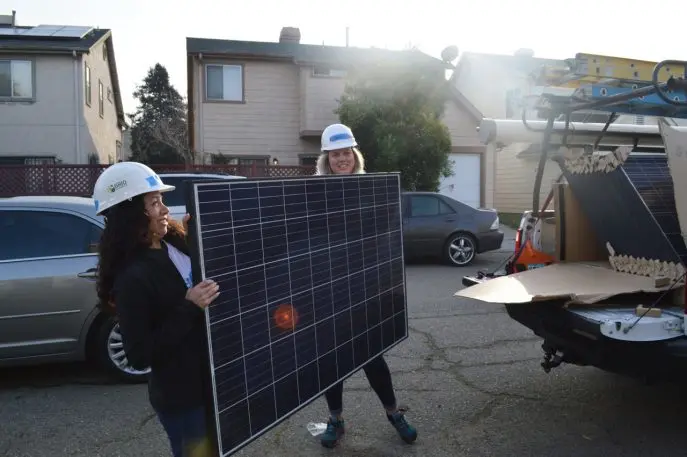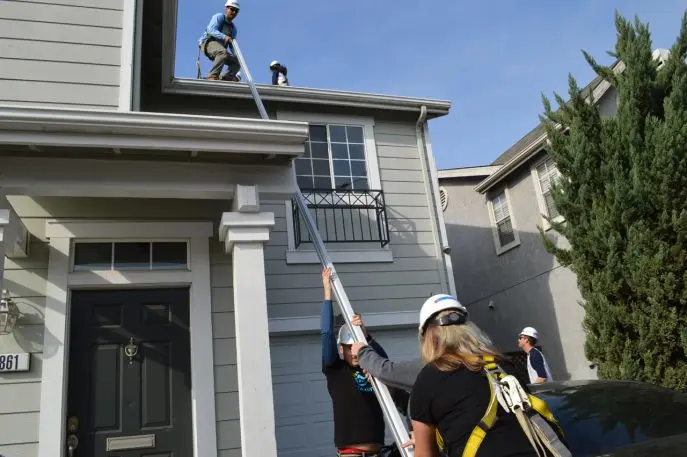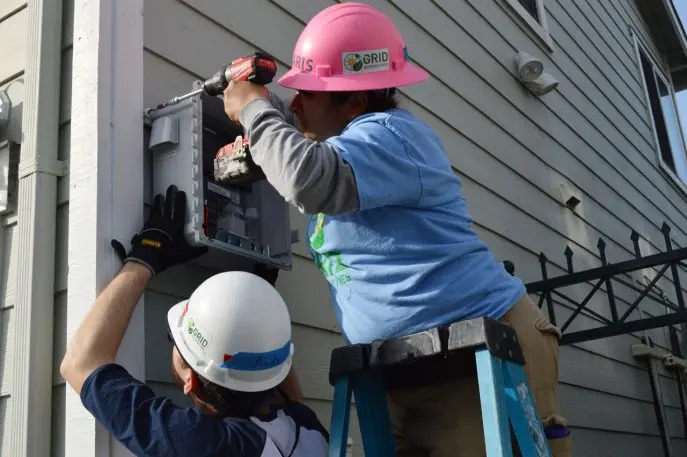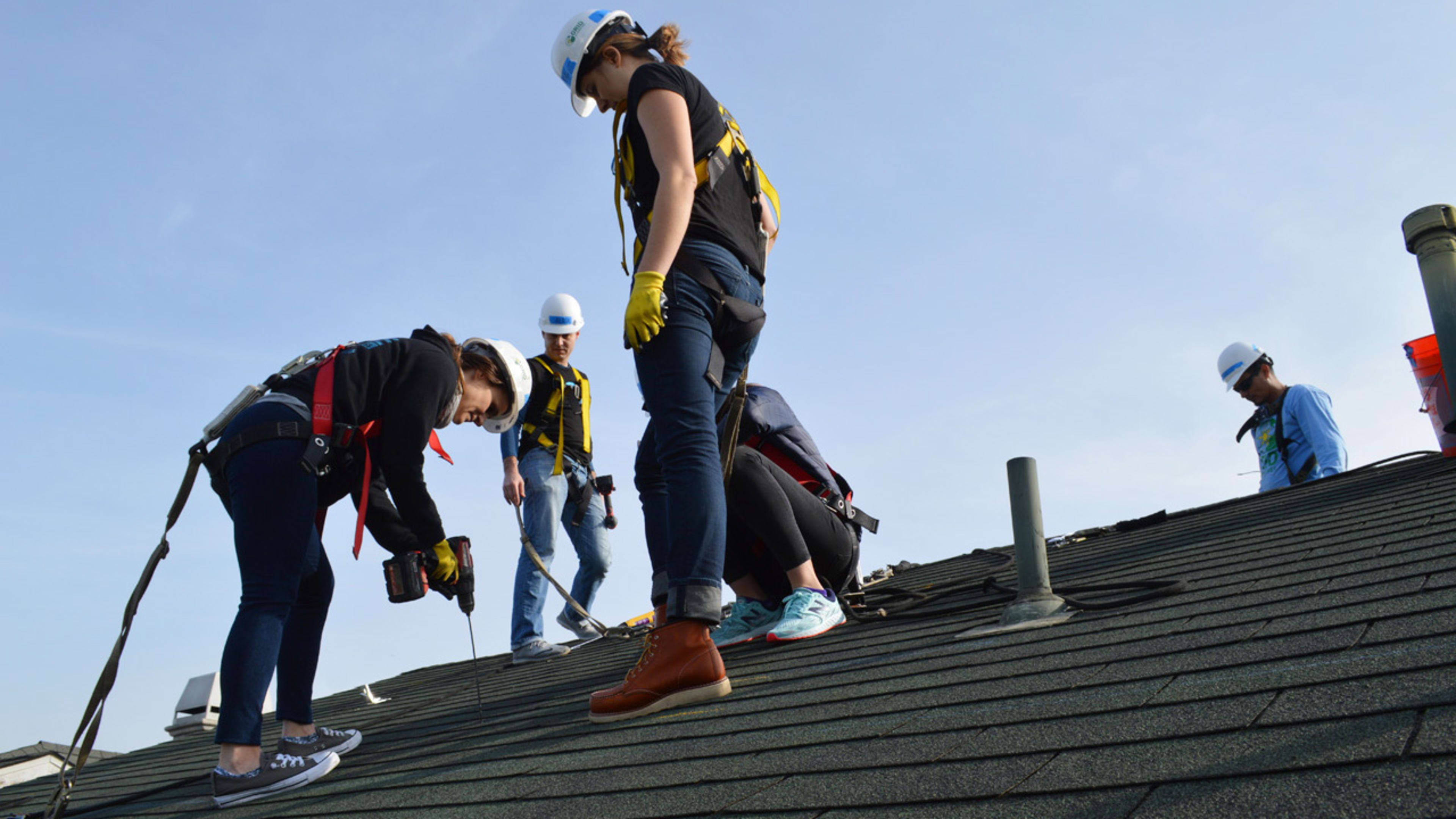As California prepares to shift to 100% renewable energy by 2045–so far, it’s the largest economy in the world to commit to such an aggressive goal–the state needs to double down on its production of local clean energy.
Part of that process will involve expanding access to solar for residents and communities that have previously not been able to tap into the growing clean energy market, especially people living in low and moderate-income multifamily developments.
Sunrun, a San Francisco-based residential solar and storage company with around 3,200 employees, has a plan to help fill that access gap. Over the next 10 years, the company will install at least 100 megawatts of solar on affordable multifamily housing developments where 80% of residents earn below 60% of the area median income. “We have a very broad vision for how residential rooftop solar can change our energy system,” says Sunrun chief of policy Anne Hoskins, “but we have to make sure that can happen across all income levels.”

Since Sunrun was founded in 2007, says Hoskins, the company has aimed to democratize access to solar. It pioneered a solar-as-a-service model, in which homeowners could lease solar panels from Sunrun and pay for electricity usage, but avoid the cost of paying for the panels outright. That substantially reduced the expense associated with residential solar, especially considering a home solar system in 2007 cost around $53,000 (the price has dropped to about $20,000 today).
Though it’s expanded this model to 23 states and Puerto Rico, Sunrun has been on the lookout for opportunities to deepen its impact in low-income communities, which, Hoskins says, are too often subject to the negative externalities of coal and fossil-fuel-based energy systems, while lacking access to renewables.

Especially as it’s doubled down on its commitment to reaching 100% renewable energy, the state of California has been thinking along the same lines: How can it make residential rooftop solar accessible to even the lowest income brackets? At the end of 2017, the state delivered a solution in the form of a $1 billion program, Solar on Multifamily Affordable Housing, which will be paid for by California’s cap-and-trade program. SOMAH offers affordable housing owners incentives–around $1,000 per panel–for installing solar on the roofs of their developments.

The goal of the SOMAH program is to add 300 megawatts of solar on affordable housing developments by 2030; Sunrun is committed to providing at least one-third of that total. Once Sunrun’s arrays are fully deployed, they’ll reach at least 50,000 low-income households at no cost to the tenants, who will see reductions in their utility bills and, likely, air-quality improvements in their community. Because the state government will be offering incentives to affordable housing owners to install solar, those owners will be able to use that funding to lease solar arrays from Sunrun, upping the company’s reach and influence, and ultimately lowering the overall electricity costs for the building owners.
Throughout the course of this new commitment, Sunrun also aims to establish partnerships with nonprofits, similar to its ongoing relationship with GRID Alternatives, an Oakland-based nonprofit with which Sunrun has a longstanding relationship. GRID Alternatives coordinates solar installations mainly for low-income, single-family homeowners, and also trains people in marginalized communities for jobs in solar and clean energy. Sunrun wants to ensure that their deployment of the 100 megawatts of new solar on multifamily developments continues to support job training and economic opportunities for residents. Noemi Gallardo, senior manager for public policy at Sunrun, came to the company via a fellowship at the Greenlining Institute, which works for environmental justice in low-income communities, and she’ll be helping coordinate community outreach and employment opportunities as Sunrun begins its expansion to multifamily affordable units. Residential solar, “is a way of providing good jobs to a community that can’t be exported,” Hoskins says. “It’s a very powerful opportunity for us to not only support cleaner energy and a healthier environment, but also economic opportunity in disadvantaged communities.”
Recognize your brand’s excellence by applying to this year’s Brands That Matter Awards before the early-rate deadline, May 3.
